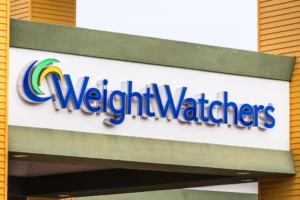
Weight-loss drugs are rising in popularity, pushing established diet players like Jenny Craig out of business
With summer fast approaching, weight loss is on many people’s minds. After a resurgence of the body-positivity movement in the last few years, the pendulum seems to have swung the other way with the rise of weight-loss medications.
With the majority of United States adults classified as overweight or obese, the burgeoning weight-loss market could be worth around $100 billion by 2030. The medical cost of obesity in particular is high, having hit nearly $173 billion in 2019, according to data from the Centers for Disease Control and Prevention (CDC).
GLP-1 medications support weight loss by sending signals to the brain and body that make patients feel full and satiated longer. Clinical trials revealed that patients could anticipate losing around 10-18% of their body weight.

Many large healthcare players are entering the market. WeightWatchers recently moved into the obesity drug market with its acquisition of Sequence; Teladoc recently expanded its provider-based service for employers to include weight management and prediabetes services.
Ro, the direct-to-patient digital healthcare company, announced Ro Body earlier this spring, which provides access to GLP-1 medications. For the Ro Body program, patients begin by completing an online visit that covers their health history and goals, an at-home metabolic test that they mail to a lab for processing and a video consultation with a provider. Patients then get two dozen provider consultations a year and track their weight loss with a connected scale in addition to receiving medications. Ro focuses on a holistic and convenient approach to providing access to GLP-1s.
Diet companies are suffering
Other businesses have suffered due to the rise of GLP-1s. Jenny Craig, once a popular weight-loss brand that had celebrity endorsers like Queen Latifah, Mariah Carey and Jason Alexander, recently closed up shop after forty years in business. Its closure is likely connected with the rise of GLP-1s, as many consumers have grown impatient or disenfranchised with the long-held beliefs that diet and exercise are the best way to weight loss.
According to an e-mail received by Jenny Craig employees, the company will close due to its inability to secure additional funding. Investors’ lack of interest indicates the larger market shift towards GLP-1s, as do the strategic transitions of companies like WeightWatchers.
Consumers may have been frustrated by the high cost of nutritional programs like Jenny Craig, which most recently ranged from $97.93 to $203 per week, according to a 2023 report by Forbes, and may not have been as effective as GLP-1s. Similarly, the creators of the South Beach Diet announced they were “taking a break” from the home delivery of frozen diet meals and a la carte foods in August 2022. The market of diet industry veterans has changed quickly due to the rise of GLP-1s.
The science behind weight-loss drugs
Dr. Raoul Manalac, M.D., an obesity expert and senior director of clinical experience for Ro’s Body Program, spoke to Athletech News about the rise of GLP-1s.
“It’s important to remember that GLP-1s are not a quick solution to lose 10 pounds; they are a medication to treat a chronic disease,” Dr. Manalac said. “This medication is not for everyone. They’re best suited for people experiencing obesity with a BMI over 30 who’ve made several previous weight loss attempts, or those with a BMI over 27 with another weight-related health issue.”
GLP-1s have taken Hollywood by storm. In September 2022, Andy Cohen, the Bravo host and “Real Housewives” executive producer, tweeted: “Everyone is suddenly showing up 25 pounds lighter. What happens when they stop taking #Ozempic ?????” (a popular brand-name GLP-1 drug).
However, for some, GLP-1s are a welcome alternative to bariatric surgery, which is inaccessible to many Americans due to price and limited medical resources. Some potential side effects of the drugs are that they slow down how quickly your stomach empties.
“This action can lead to side effects in your digestive system, including nausea, diarrhea, constipation, heartburn or other abdominal pain, as well as potential irritation in the area where you inject the shot,” Dr. Manalac said.
The rise of GLP-1s comes at an interesting time due to the larger cultural conversation about weight loss, body image and health. Despite the rise of body positivity, there remains a stigma and bias surrounding obesity. Some argue that treating obesity like a chronic condition is more beneficial to those desiring to lose weight. Barclays recently projected that obesity drugs could be worth $200 billion within the next decade. Time will tell if the drugs continue on this path of popularity, but for now, the drugs’ growth isn’t slowing down.
